13 Jul
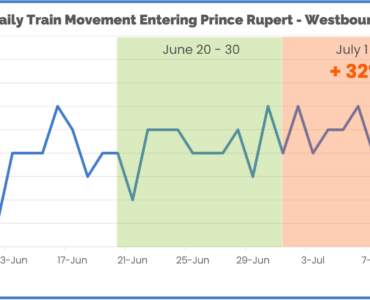
Western Ports Strike Special Report – Commod...
RailState is closely monitoring the flows of rail traffic in the western ports region as a result of the ILWU strike. Intermodal experienced the most immediate changes from the work stoppage, slowing to a halt soon after the start of
11 Jul
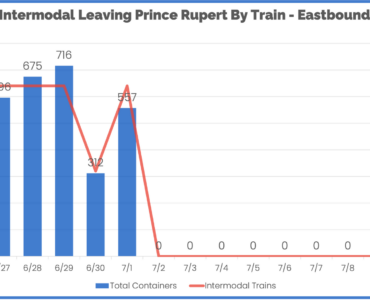
Western Ports Strike Special Report – Impact...
RailState is closely monitoring the flows of rail traffic in the western ports region as a result of the ILWU strike. The most dramatic change has been in intermodal. All non-domestic intermodal rail traffic into and out of the Ports
08 Jul
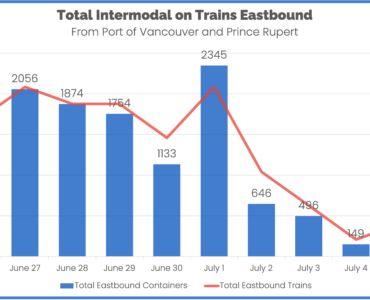
Western Ports Special Report: Impact of Dockworker...
The dockworkers’ strike at the western ports began on July 1 and we have seen a fast and significant impact on freight rail volume out of the ports. Container volume out of the ports quickly dropped and there are now
06 Jul
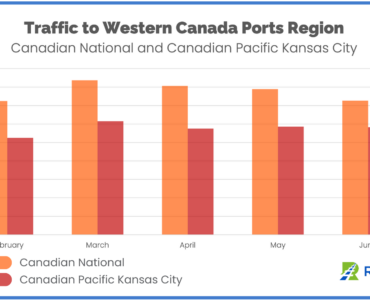
Traffic Report: Western Canada Ports, June 2023
Overall traffic moving into the western ports region declined in June, going from 137,550 carloads moving to the ports in May to 130,906 carloads in June, a decrease of 4.8%. Daily average volume in June was 4,364 carloads per day.
06 Jul
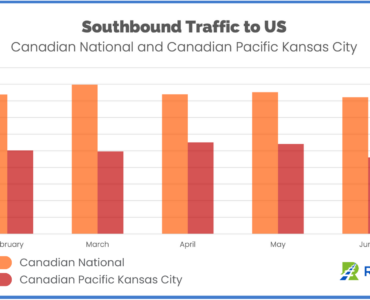
Traffic Report: Cross Border, June 2023
Total southbound traffic on CN in June was 82,266 cars, which was 3.5% lower than traffic in May (85,256 cars). CPKC showed a larger decrease in total southbound traffic from May to May, dropping 15%. Average daily southbound traffic for
06 Jul
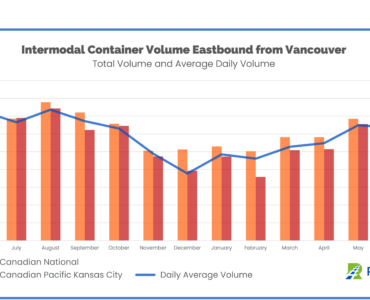
Traffic Report: Intermodal, June 2023
June saw 63,523 containers enter through the western Canada ports. This is a drop of 5.27% of total container volume from May and 12.6% lower volume than June 2022. Average daily volume was 2,117 containers per day. While June volume
21 Jun
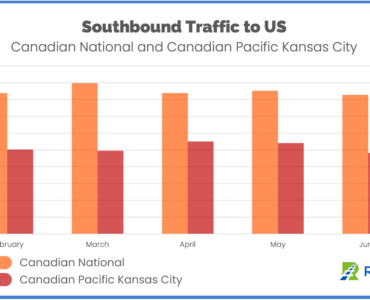
Traffic Report: Cross Border, Mid-June 2023
Southbound traffic into the US declined in June on both carriers. CPKC saw a larger drop of 10.9% in southbound traffic compared to May, and CN saw a modest decrease of 2.8%. Based on data from June 1-15, this month
21 Jun
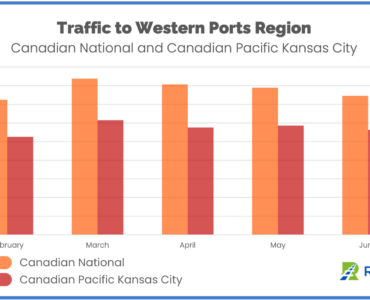
Traffic Report: Western Canada Ports, Mid-June 202...
Overall traffic moving into the western ports region is down 4.9% in the first two weeks of June. Total volume to the western ports region is on pace to hit 130,800 carloads by the end of the month, about 7,000
20 Jun
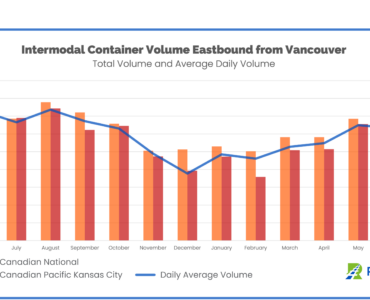
Traffic Report: Intermodal, Mid-June 2023
CPKC sees strong volume to start the month; CN shows big decline from May. Total average daily volume for June is 2,111 containers per day, a drop of 2.41% from May.
07 Jun
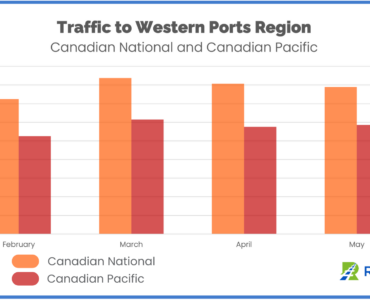
Traffic Report: Western Ports, May 2023
Import traffic into the ports of Vancouver and Ridley eclipsed traffic moving westbound into the ports region in May, with 141,304 carloads coming into Canada compared to 137,550 moving toward the ports, a 3,754 carload difference.



